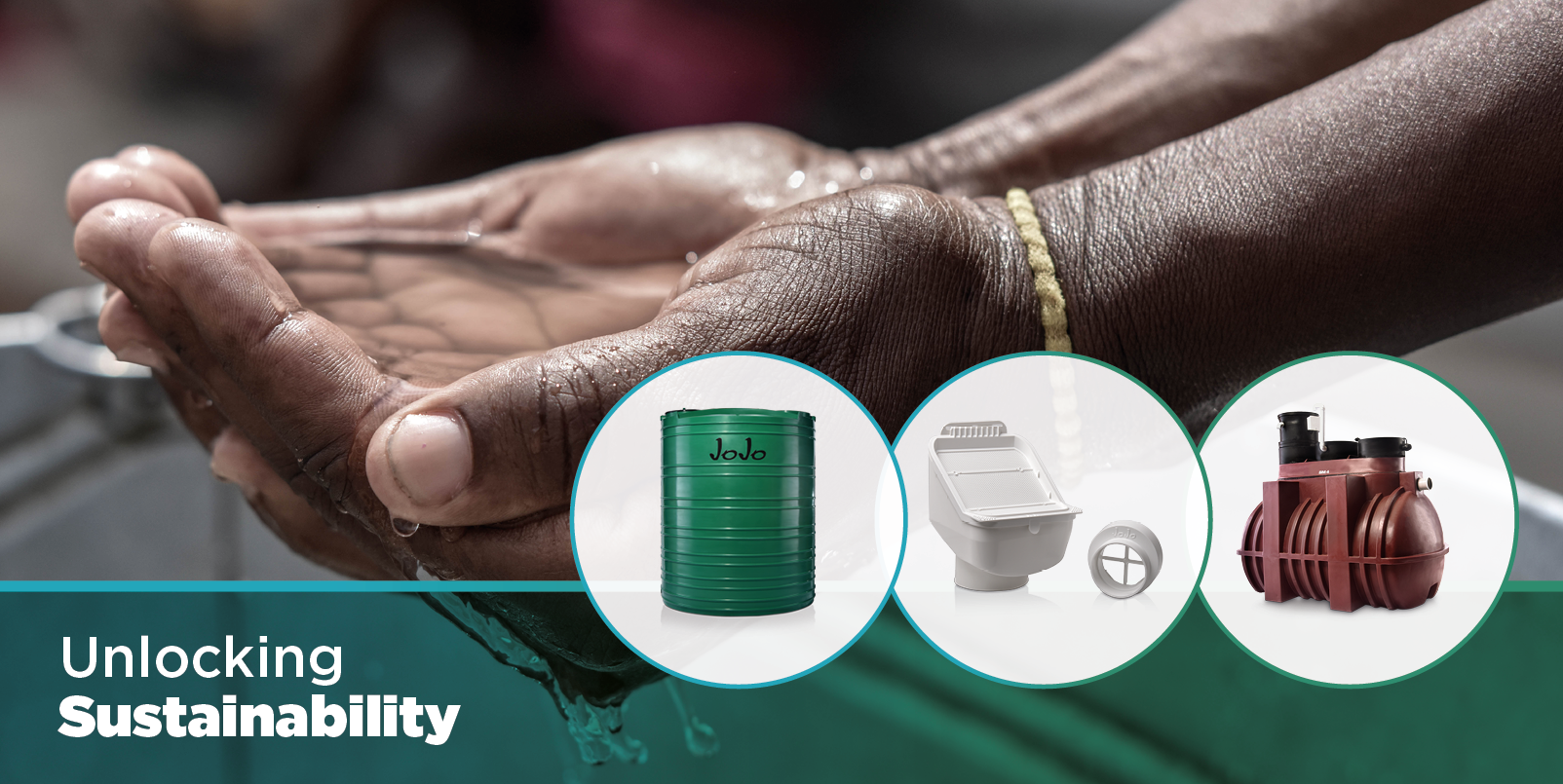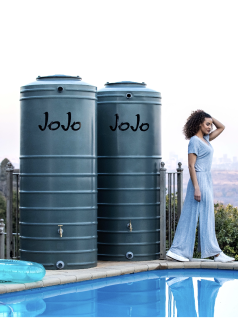Unlocking Sustainability: Exploring Alternative Water Sources and Their Diverse Applications in the Industrial/Commercial Market
The need for sustainable water sources is becoming increasingly urgent as we face heightened pressure on our planet’s water supplies. This issue is particularly significant in industries and markets that require high water use.
As concerns over water scarcity grow, we must examine how industrial water use, one of the largest consumers of this precious resource, impacts our global water supply and explore solutions to mitigate this effect.
Alternative water sources present a compelling response to this challenge. These solutions do more than just shrink our environmental impact – they can also yield significant financial gains for businesses in the industrial and commercial sectors. (More on commercial water use and potential savings coming up!)
By harnessing unconventional water sources such as rainwater and wastewater, businesses can decrease their reliance on municipal water supplies, lower operational costs, and improve overall water efficiency.
Reimagining how we use (and conserve) water requires a comprehensive understanding of the diverse applications of alternative water sources and a commitment to driving innovation in industrial and commercial water use. This approach promises to unlock a new era of sustainability while fostering healthier economies and ecosystems.
Throughout this blog post, we we’ll delve into the current state of water usage in the industrial and commercial sectors, explore ways in which industries can reduce water consumption, and highlight the critical role of innovative companies like JoJo Tanks (that’s us!) and Calcamite (our trusted partners) in providing sustainable, alternative water and wastewater solutions.
Our aim is to inspire and motivate businesses to embrace water sustainability, and join us in safeguarding this invaluable resource for generations to come. We invite you to join us on this exploration of the potential for alternative water sources to revolutionise the industrial and commercial sectors, shaping a more sustainable and resilient future!
The Impact of Water Usage in the Industrial and Commercial Sectors
Water serves as a core ingredient in the growth and sustainability of any industrial or commercial venture. However, its availability is becoming a concern for businesses.
Current Water Use in the Industrial and Commercial Markets
Water use in the industrial and commercial sectors varies widely, driven by a vast array of activities these sectors embrace.
For instance, industrial processes such as manufacturing, cooling, and processing represented around 5% of the total water withdrawals in the United States in 2015, primarily relying on surface water for 82% of these withdrawals.
While it varies from region to region, industries like energy production, manufacturing, and construction account for roughly 19% of total freshwater withdrawals globally.
Impact on Water Scarcity
Industrial and commercial water usage has profound effects on water scarcity. As these sectors continue to expand in line with the growing global population, water use has skyrocketed, increasing almost six-fold since 1900 and has only shown signs of plateauing since 2000.
Over-extraction of water for these activities leads to water stress, which in turn paves the way for long-term water scarcity – and possible harm to delicate ecosystems.
Industrial water use also often results in water pollution, further aggravating the scarcity issue. Wastewater from industrial processes, laden with pollutants, can contaminate freshwater resources when not properly treated.
Benefits of Reducing Reliance on Municipal Water
The advantages of reducing reliance on municipal water are multi-faceted. Not only does it help in preserving the regional water resources, but it also cushions businesses against fluctuations in water supply and tariffs.
Companies implementing water efficiency measures and harnessing alternative water sources can significantly reduce their long-term operational costs. This strategic approach to water use can also boost brand reputation, demonstrating a commitment to sustainable practices.
Industrial Water Use FAQs
What industry uses the most water?
Industries involved in food production, paper manufacturing, chemical production, petroleum refining, and metal extraction are amongst the highest consumers of water.
How is water used in industry?
Water is a key component of many industrial processes. It’s used for fabricating, processing, washing, diluting, cooling, transporting, and sanitising during manufacturing.
How are industries reducing water use?
Many industries are thankfully adopting strategies to reduce their water use, including improving the efficiency of their processes, and implementing water reuse and recycling. There has been a noted decline in industrial water withdrawals, thanks to shifts in industrial practices, growth in the service sector, and stringent environmental regulations.
How does industrial use affect water supply?
Over-extraction by industries can result in water stress, leading to water scarcity and potential harm to ecosystems. Additionally, water pollution from industrial processes can worsen water scarcity by contaminating freshwater resources.
How much water does a commercial building use?
Quantifying water use in commercial buildings can be challenging due to variations in size, function, and location. That said, some studies have been conducted to develop water use metrics for various commercial and institutional sectors. Hopefully, these metrics will allow us a clearer understanding of water use patterns in these areas.
A Solution for Water Sustainability in the industrial and commercial markets
As the pressure on our water resources continues to grow, industries and commercial ventures need to look for innovative ways to sustain their water usage. Exploring alternative water sources not only bolsters conservation efforts but also promises economic benefits in the long run.
Alternative Water Sources
- Rainwater Harvesting
One of the most sustainable (and easy-to-implement) methods is rainwater harvesting. This practice involves collecting and storing rainwater for later use.
Rainwater can be collected from roofs or other suitable catchment areas, and stored in tanks. It can be used for various non-potable uses like irrigation, washing, and even cooling in industrial processes, reducing the demand on the municipal water supply.
By incorporating effective filtration systems, the potential of rainwater extends beyond non-potable uses, encompassing potable applications as well.
- Greywater Recycling
Greywater recycling, another practical option, focuses on reusing water from domestic activities like washing dishes, laundry, and bathing. Greywater systems capture, treat and recycle this water for reuse in irrigation or toilet flushing, for instance. Implementing greywater recycling systems in commercial buildings can significantly reduce water usage and lower water bills.
- Wastewater Treatment and Reuse
Lastly, wastewater treatment and reuse is an effective solution, particularly for industries that generate substantial volumes of wastewater. This approach treats and purifies the wastewater to meet specific quality standards, making it safe for reuse in various industrial processes.
JoJo Tanks: Facilitating Sustainable Water Use
JoJo Tanks plays a pivotal role in facilitating these alternative water sources with an array of durable, high-quality storage tanks suitable for different needs and applications. From storing harvested rainwater to holding treated wastewater for reuse, these tanks are integral to any water sustainability initiative.
Of course, it’s not just about the tanks. To truly harness the power of alternative water sources, understanding the specific requirements and implementing a comprehensive solution is crucial.
This is where Calcamite steps into the equation. With its expertise in wastewater solutions, Calcamite can assess an operation’s unique needs, design a , and execute it in a manner that’s both effective and sustainable.
Together, JoJo Tanks and Calcamite offer a comprehensive solution to industries and businesses striving for water sustainability. By reducing reliance on municipal water and embracing alternative water sources, we’re investing not only in their future resilience but also in the sustainability of our shared water resources.
The Role of Water Management in Sustainability
In the quest for sustainability, the significance of water management can’t be overstated. With industries and commercial markets being prominent consumers, alternative water sources can drastically reduce their dependence on traditional water supplies. When effectively utilised, these alternative resources not only help conserve water but also play a crucial role in aligning with the sustainability goals of businesses.
Employing strategies like rainwater harvesting and wastewater recycling can considerably reduce industrial water use. They also present opportunities for commercial water use to be optimised. These practices help safeguard our precious water resources while ensuring businesses can operate efficiently without straining the municipal supplies.
Sustainable water management, thus, aligns perfectly with the broader environmental goals of companies and organisations. It offers a highly practical way to reduce their environmental footprint and meet their corporate social responsibilities, all while working towards a more sustainable future.
Lowering Operational Cost – Commercial Water Use and Potential Savings
While implementing alternative water solutions might require an upfront investment, the long-term savings and benefits are well worth the cost. Reducing reliance on municipal water supplies and recycling wastewater can lead to significant savings in water bills, especially for operations with high water usage.
Over and above this, alternative water sources offer a level of resilience against water supply disruptions and price volatility. They provide a more predictable and controllable water cost, which can greatly enhance the financial stability of a business in the long run.
In Conclusion
The importance of water sustainability transcends the boundaries of the environment and enters the realm of economic viability and future-proofing. Businesses (particularly those in the industrial and commercial sectors) have a significant role to play in this.
By harnessing alternative water sources and adopting sustainable water management practices, they have the power to make a substantial impact. In doing so, they not only secure their operations against water scarcity but also contribute to a more sustainable and water-resilient future.
In collaboration with partners like Calcamite, we at JoJo Tanks are committed to facilitating this transition towards sustainability. Through our range of water storage solutions and expertise, we aim to empower businesses to realise the potential of alternative water sources (make significant savings in the process!) and contribute positively to the environment.



